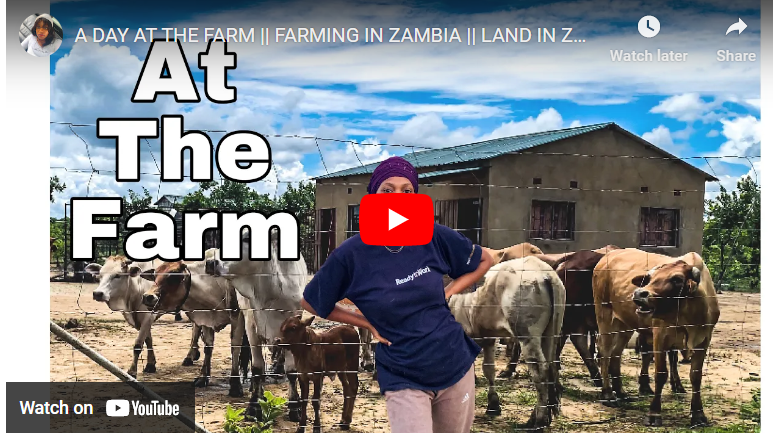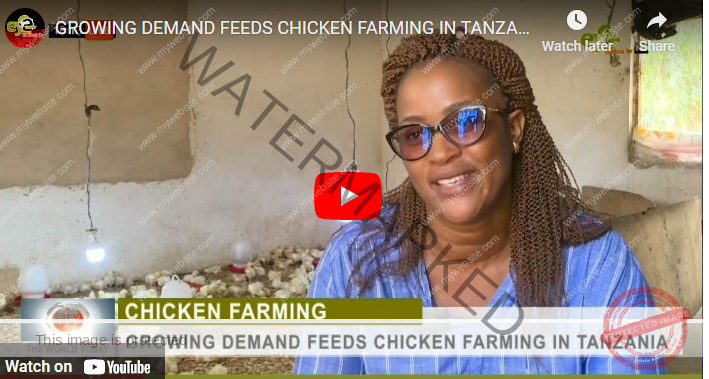Richest Poultry Farmer In Nigeria – Poultry farming has become an important sector of the Nigerian economy due to its profitability and increasing demand for poultry products. With a population of over 200 million people, Nigeria has a large and growing market for poultry products such as eggs and meat.
As a result, many entrepreneurs have ventured into poultry farming, and some have become extremely successful in the industry. Some of the most successful poultry Farmers in Nigeria include Olusegun Obasanjo, Usman Dantata Jr., Dr Olatunde and Lady Olufunmilayo Agbato, and Peter Adeniyi.
In this article, we will explore the factors richest poultry farmers in Nigeria. Also, we will provide you with important information such as that have contributed to the success of poultry farming in Nigeria, the types of systems used by the richest poultry farmers in Nigeria, and more.
Richest Poultry Farmer In Nigeria
Poultry farming is one of the most lucrative agricultural ventures in Nigeria, and over the years, many entrepreneurs have made a fortune from the industry.
Nigeria’s poultry industry is one of the largest in Africa, with a market size valued at over $1.2 billion. The industry is made up of a mix of large and small-scale producers, with most farmers concentrated in the southwestern and northern regions of the country.
Read Also: Top 5 Richest Poultry Farmer In Kenya
The industry is responsible for providing employment opportunities for millions of Nigerians, and its growth potential remains significant due to the country’s increasing population.
Now, we’ll take a look at the top 4 richest poultry farmers in Nigeria and explore their biographies, careers, and net worth.
#1. Olusegun Obasanjo
Olusegun Obasanjo is a former Nigerian President and retired Army General. He was born on March 5, 1937, in Abeokuta, Ogun State, Nigeria. Obasanjo is one of the most successful poultry farmers in Nigeria, and he is the owner of Obasanjo Farms Nigeria Limited, which is one of the largest poultry farms in the country.
Read Also: Top 5 Richest Poultry Farmer In Kenya
Obasanjo started his poultry farming business in the 1970s, and over the years, he has grown the business into a multi-million dollar enterprise.
Poultry Farm
Obasanjo Farms Nigeria Limited is one of the largest poultry farms in Nigeria, with over 200,000 birds in production at any given time.
The farm also produces eggs, broilers, and day-old chicks. The farm is located in Ogun State, Nigeria, and it is equipped with modern facilities and equipment.
Read Also: Richest Poultry Farmer In Ghana
Net Worth
Olusegun Obasanjo’s net worth is estimated to be around $1.5 billion, making him one of the richest poultry farmers in Nigeria.
Apart from his poultry business, Obasanjo is also a successful politician and businessman, having served as the President of Nigeria from 1999 to 2007.
#2. Usman Dantata Jr.
Usman Dantata Jr. is the son of late Alhaji Usman Dantata, who was one of the wealthiest men in Nigeria.
Read Also: Richest Pig Farmer In Zambia
Usman Dantata Jr. is the founder of MDS Foods, which is one of the largest poultry and food processing companies in Nigeria. Dantata Jr. started his poultry farming business in the early 1980s, and over the years, he has built a business empire that spans across different sectors of the economy.
Poultry Farm
MDS Foods is one of the largest poultry and food processing companies in Nigeria. The company produces a wide range of poultry products, including chicken, turkey, and eggs. The company’s poultry farm is located in Kano State, Nigeria, and it is equipped with modern facilities and equipment.
Read Also: Richest Pig Farmer In Uganda
Net Worth
Usman Dantata Jr. is the CEO of Dansa Foods Limited, a company that specializes in the production of beverages and food products. His net worth is estimated to be around $650 million, with a significant portion of his wealth coming from his poultry farming business.
#3. Dr. Olatunde and Lady Olufunmilayo Agbato
Dr. Olatunde Agbato is a medical doctor and entrepreneur, while his wife, Lady Olufunmilayo Agbato, is a lawyer and entrepreneur.
Together, they own Tuns Farms Nigeria Limited, which is one of the largest poultry farms in Nigeria.
Read Also: Richest Pig Farmer In The World
The couple started their poultry farming business in the early 1980s, and over the years, they have grown the business into a multi-million dollar enterprise.
Poultry Farm
Tuns Farms Nigeria Limited is one of the largest poultry farms in Nigeria, with over 1 million birds in production at any given time.
The farm also produces eggs, broilers, and day-old chicks. The farm is located in Ogun State, Nigeria, and it is equipped with modern facilities and equipment.
Read Also: Top 5 Richest Pig Farmer In Kenya
Net Worth
The Agbato’s are the founders of Farmkonnect Nigeria, a company that specializes in the production of organic foods and livestock.
Their net worth is estimated to be around $350 million, with a significant portion of their wealth coming from their poultry farming business.
Read Also: Richest Sikh Farmers In California
#4. Peter Adeniyi
Peter Adeniyi is a poultry farmer and entrepreneur. He is the founder of Animal Care Services Konsult Nigeria Limited, which is one of the largest poultry and veterinary services companies in Nigeria.
Adeniyi started his poultry farming business in the early 1980s, and over the years, he has built a business empire that includes several companies in different sectors of the economy.
Read Also: Top 5 Richest Goat Farmers In Uganda
Poultry Farm
Peter Adeniyi is a successful poultry farmer and founder of PS Nutraceuticals International Limited, a company that specializes in the production of animal feed and nutritional supplements.
Adeniyi’s love for poultry farming started when he was just 12 years old, and he has since grown his passion into a successful business.
Read Also: Richest Poultry Farmer In The World
Adeniyi’s poultry farm is located in Ogun State, Nigeria, and is one of the largest in the country.
His farm has over 600,000 birds, and he employs modern production techniques to ensure high-quality output. Adeniyi also invests in the latest equipment and technology to improve his farm’s efficiency and productivity.
Read Also: Top 5 Richest Farmers In Zambia
In addition to his poultry farm, Adeniyi’s company, PS Nutraceuticals, is also involved in the production of animal feed and nutritional supplements.
The company has become a major player in the Nigerian agricultural sector, with its products being widely used by farmers across the country.
Net Worth
Peter Adeniyi is the founder of PS Nutraceuticals International Limited, a company that specializes in the production of animal feed and nutritional supplements. His net worth is estimated to be around $150 million, with a significant portion of his wealth coming from his poultry farming business.
Read Also: Top 12 Richest Farmers In The World
The Type Of System The Richest Poultry Farmers Use
Poultry farming in Nigeria can be carried out using several systems, including intensive, semi-intensive, and free-range systems.
The richest poultry farmers in Nigeria typically use the intensive system, which involves keeping a large number of birds in a small space and providing them with a controlled environment and feed.
This system allows for maximum output and profitability, as farmers can produce more birds in a shorter period.
Some of the key features of the intensive system used by the richest poultry farmers in Nigeria include:
Read Also: Top 5 Richest Farmers In South Africa
- High-density housing: In the intensive system, birds are housed in high-density conditions, with several birds per square meter. This allows for maximum use of space and ensures that the farmer can keep a large number of birds in a small area.
- Controlled environment: The environment in which the birds are kept is carefully controlled, with temperature, humidity, and lighting all monitored and adjusted as needed. This helps to create optimal conditions for bird growth and health.
- Quality feed: The richest poultry farmers in Nigeria use quality feed that is formulated to meet the nutritional needs of their birds. The feed is often produced on-site to ensure its freshness and quality.
- Biosecurity measures: Poultry farming in Nigeria is prone to disease outbreaks, which can have devastating effects on bird populations and farm profitability. The richest poultry farmers in Nigeria implement strict biosecurity measures to prevent disease outbreaks, including measures such as disinfection, quarantine, and vaccination.
- Modern equipment: The intensive system used by the richest poultry farmers in Nigeria requires modern equipment such as feeding, watering, and ventilation systems. This equipment is designed to improve efficiency and ensure optimal bird growth and health conditions.
Read Also: Top 10 Richest Farmers In Kenya
Lucrativeness Of Poultry Farming in Nigeria
Poultry farming is one of the most lucrative agricultural ventures in Nigeria, with the potential for high returns on investment.
The profitability of poultry farming depends on several factors, including the production system used, the quality of feed, the level of investment in equipment and infrastructure, and the efficiency of management practices.
Read Also: Top 10 Richest Farmers In Ireland
In Nigeria, poultry products such as eggs and chicken meat are in high demand, and the market is expected to continue to grow due to population growth, urbanization, and changing consumer preferences.
This presents a significant opportunity for poultry farmers who can meet this demand and produce high-quality products that meet consumer expectations.
Some of the factors that contribute to the lucrativeness of poultry farming in Nigeria include:
Read Also: Top 10 Richest Farmers In India
- Low start-up costs: Poultry farming requires relatively low start-up costs compared to other agricultural ventures, making it accessible to a wide range of farmers.
- High returns on investment: With the right production techniques and management practices, poultry farming can generate high returns on investment, with some farmers reporting profits of up to 50%.
- Multiple revenue streams: Poultry farming provides multiple revenue streams, including the sale of eggs, meat, and manure, which can be used as fertilizer.
- Quick turnaround time: Poultry farming has a relatively short production cycle, with chickens reaching maturity in as little as 6-8 weeks. This allows farmers to generate income quickly and reduces the risk of losses due to disease or other factors.
- Government support: The Nigerian government has implemented several policies and initiatives to support the development of the poultry industry, including funding for research and development, incentives for private sector investment, and the establishment of veterinary clinics to improve animal health.
Read Also: Top 5 Richest Farmers In Ghana
Factors That Contribute To Poultry Farming Success In Nigeria
Poultry farming success in Nigeria can be attributed to several factors, including:
- Favorable weather conditions: Nigeria’s warm and humid weather conditions make it suitable for poultry farming, as the birds thrive in warm temperatures and high humidity levels.
- High demand for poultry products: Nigeria has a large and growing market for poultry products, including meat and eggs. This ensures a ready market for poultry farmers and creates opportunities for profitability.
- Government support: The Nigerian government has implemented several policies to support the poultry industry, including import restrictions on poultry products and the provision of subsidized loans for farmers. These policies have helped to protect local producers and encourage investment in the industry.
- Availability of land: Nigeria has vast arable land, making it possible for poultry farmers to access suitable land for production. This creates opportunities for expansion and investment in the industry.
- Large pool of skilled labor: Nigeria has a large population with a significant percentage of the workforce having experience in agricultural activities. This ensures that there is a large pool of skilled labor available for poultry farming activities, reducing labor costs for farmers.
Read Also: Top 12 Richest Farmers In Australia
The combination of favorable weather conditions, high demand for poultry products, government support, availability of land, and a large pool of skilled labor has created an enabling environment for poultry farming in Nigeria, contributing to the success of the industry.
Successful Tips about the Richest Poultry Farmers In Nigeria
The richest poultry farmers in Nigeria have become successful due to several factors. Here are some of the successful tips they have implemented:
- Investment in modern production techniques: The richest poultry farmers in Nigeria invest in modern production techniques such as the intensive system, which allows for maximum output and profitability. They also make use of modern equipment such as feeding systems, watering systems, and ventilation systems, which are designed to improve efficiency and ensure optimal conditions for bird growth and health.
- Quality feed: The richest poultry farmers in Nigeria use quality feed that is formulated to meet the nutritional needs of their birds. The feed is often produced on-site to ensure its freshness and quality.
- Proper housing and equipment: The richest poultry farmers in Nigeria provide proper housing and equipment to ensure optimal conditions for bird growth and health. They also make use of biosecurity measures such as disinfection, quarantine, and vaccination to prevent disease outbreaks.
- Effective management practices: The richest poultry farmers in Nigeria implement effective management practices such as disease control measures, vaccination programs, and proper waste management. They also have a deep understanding of the market and consumer trends, which allows them to adjust their production and marketing strategies accordingly.
- Continuous learning and improvement: The richest poultry farmers in Nigeria are constantly learning and improving their skills and knowledge in poultry farming. They attend training programs, conferences, and workshops to learn about new techniques, technologies, and trends in the industry.
Read Also: Top 10 Richest Farmers In Africa
Challenges Facing Poultry Farmers In Nigeria
Poultry farming in Nigeria is not without its challenges. Here are some of the major challenges facing poultry farmers in Nigeria:
- High feed costs: The cost of poultry feed accounts for a significant portion of a farmer’s expenses, and fluctuations in feed prices can have a significant impact on profits. The cost of feed is often influenced by external factors such as exchange rates, government policies, and weather conditions.
- Disease outbreaks: Disease outbreaks can be devastating for poultry farmers, leading to significant losses in birds and income. Poultry diseases such as Newcastle disease, avian influenza, and coccidiosis can spread quickly and have a high mortality rate.
- Lack of access to financing: Many poultry farmers in Nigeria struggle to access financing from banks and other financial institutions. This limits their ability to invest in modern production techniques, quality feed, housing, and equipment, which are essential for success in the industry.
- Poor infrastructure: Poor infrastructure such as roads, electricity, and water supply can make it difficult for poultry farmers to transport their products and access essential resources such as water and electricity.
- Inadequate government support: The government’s support for poultry farmers in Nigeria is often inadequate. There is a lack of policies and programs to support the industry, and farmers often have to navigate bureaucratic hurdles to access government support.
Read Also: Top 5 Richest Famers In America
Biggest Poultry Farm in Nigeria
The biggest poultry farm in Nigeria is said to be the Obasanjo Farms Nigeria, also known as Ota Farms, located in Ogun State. This farm was established in 1986 by the former Nigerian President, Olusegun Obasanjo, and it covers over 1,000 hectares of land.
Read Also: Top 5 Richest Diary Farmers In South Africa
Obasanjo Farms Nigeria specializes in the production of poultry products such as eggs and chicken meat, and it employs over 6,000 workers.
The farm also operates a feed mill, a hatchery, and a processing plant, and it has a capacity to produce up to 1.5 million broilers per cycle.
Read Also: Top 10 Richest Diary Farmers In The World
In addition to poultry, Obasanjo Farms Nigeria also engages in the production of crops such as maize, cassava, and soybean, and it is known for its commitment to sustainable agriculture practices.
Conclusion
The poultry industry in Nigeria is a lucrative venture that has the potential to contribute significantly to the country’s economic growth. The industry has experienced significant growth in recent years, and its potential for growth remains significant.
However, challenges such as high feed costs, disease outbreaks, and lack of access to financing must be addressed for the industry to reach its full potential. With effective policies, investment, and support from the government and private sector, the poultry industry in Nigeria can continue to thrive and provide employment opportunities for millions of Nigerians.



